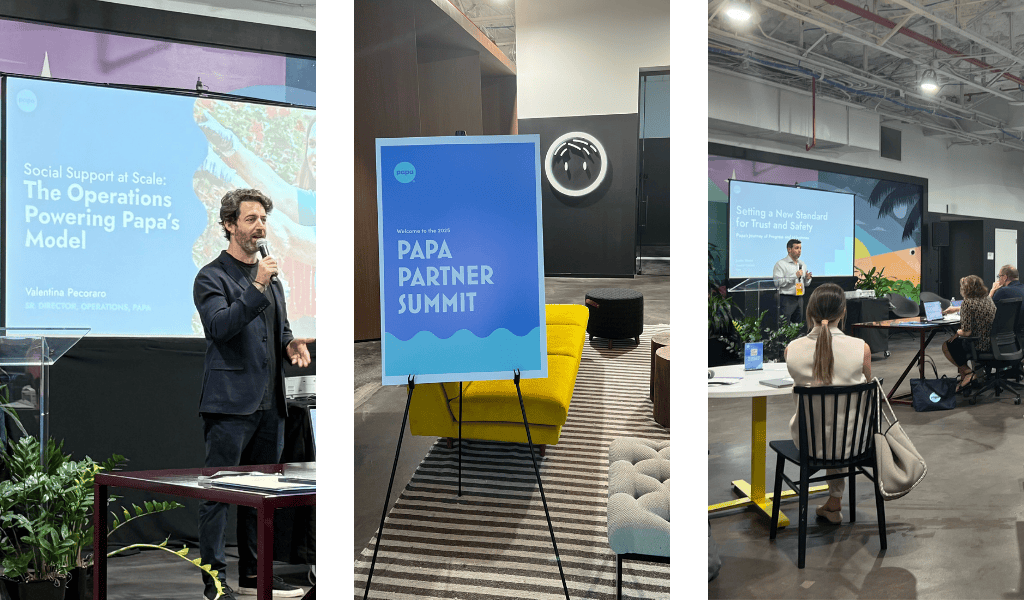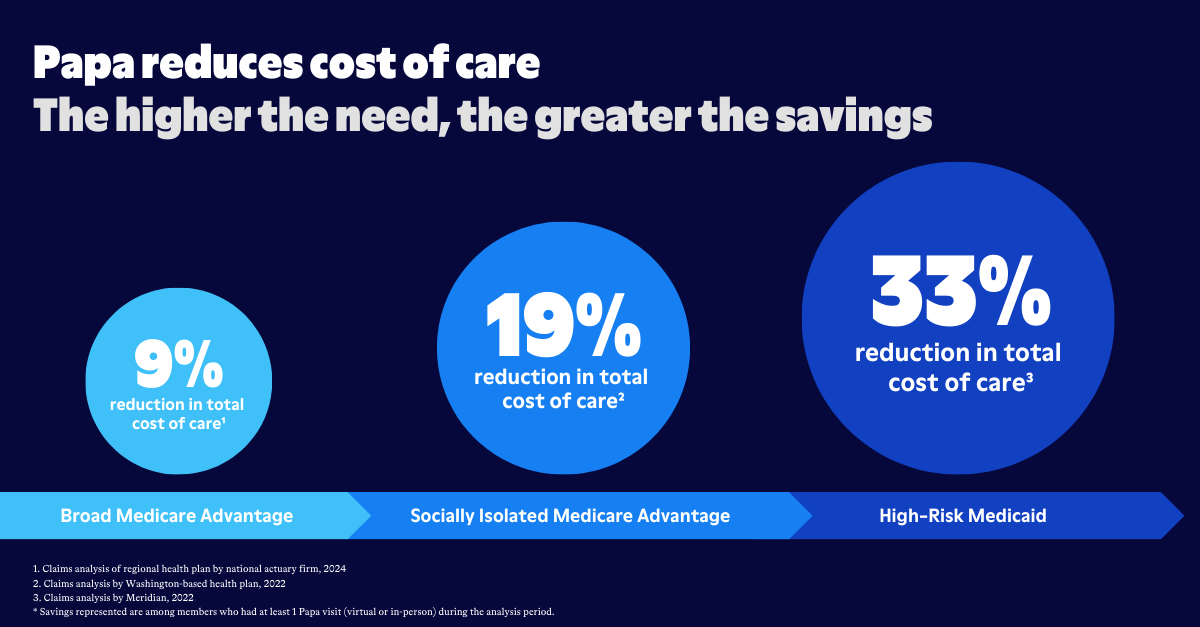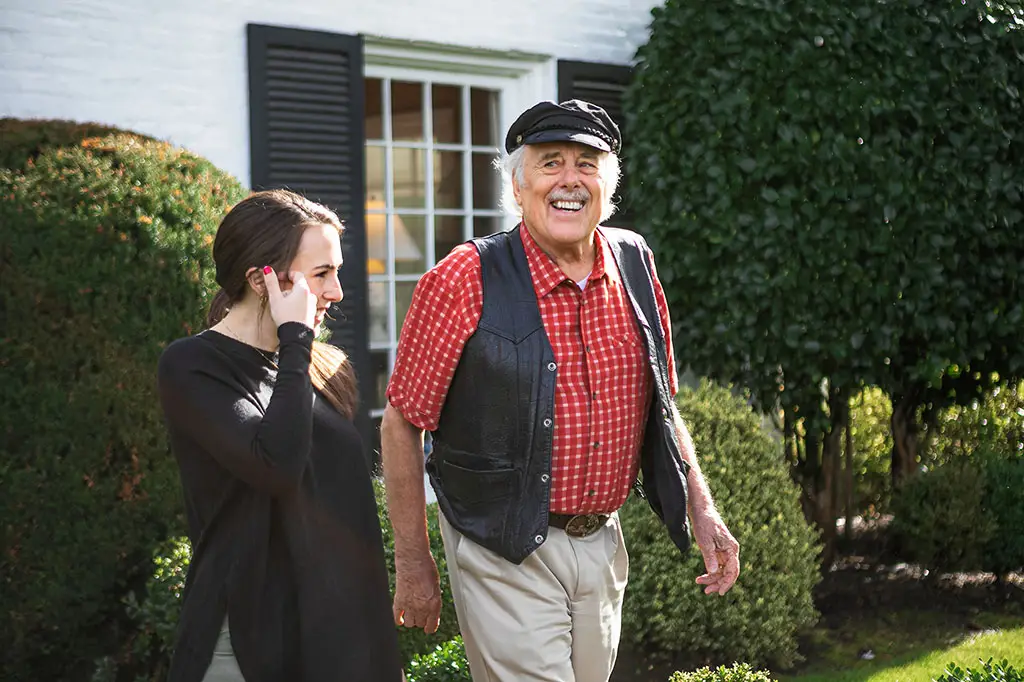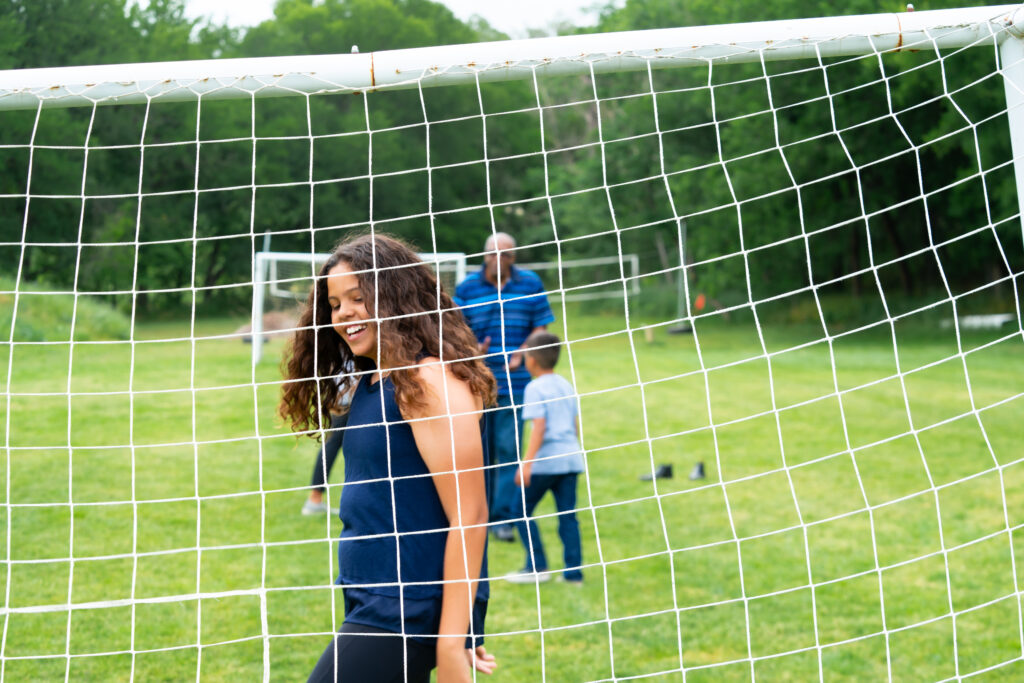
Figuring out how to build a strong community takes time, but it's well worth every effort. “Diversity” and “equity” are buzzwords that many organizations see as a base they need to cover or a box they’re obligated to check. At Papa, diversity and equity are not “trends” or boxes we need to check. We value them deeply.
Building beautifully diverse connections and community—and promoting health equity for all Americans—is so important to us. In fact, it’s at the heart of all we do.
Building a strong community through diversity
In May 2023, US Surgeon General, Dr. Vivek H. Murthy, released an Advisory entitled: Our Epidemic of Loneliness and Isolation: The US Surgeon General’s Advisory on the Healing Effects of Social Connection and Community. He says that research suggests that “diversifying social relationships to include connections with people who are outside of your group… is associated with improved community health and well-being.” (38)
The first question we asked was what did Dr. Murthy mean by the word “community”?
“Community” generally means a group of people with a characteristic in common. For the purpose of the Advisory, community is referring to a shared geographic location. (37) In one of the chapters, the Surgeon General summarizes research that “pertains to in-person social connection and the benefits that exist within place-based communities.” (37)
As humans, we have a natural tendency to form relationships with people who are like us. When we form groups that lack diversity, society becomes more polarized. On the other hand, evidence shows that social connection among diverse people in shared geographic locations is vital. "Not only to our individual physical, mental, and emotional health, but also to the health and well-being of our communities.” (36)
More diverse social networks can provide access to more varied types of social support and generate greater levels of social capital. “Furthermore,” the Surgeon General says, “interacting with people from diverse backgrounds can help to stimulate creative thinking and encourage the consideration of different perspectives, leading to better problem-solving and decision-making.” (38)
At Papa, we witness that very thing happening between our members and Pals every day.
When members of a community are diverse—of varying ages, genders, races and ethnicities, backgrounds, and economic statuses—then building positive social connections might take a bit more effort at the beginning, but it can become something so rich and beautiful.
Papa values diverse friendships between our members and Pals.
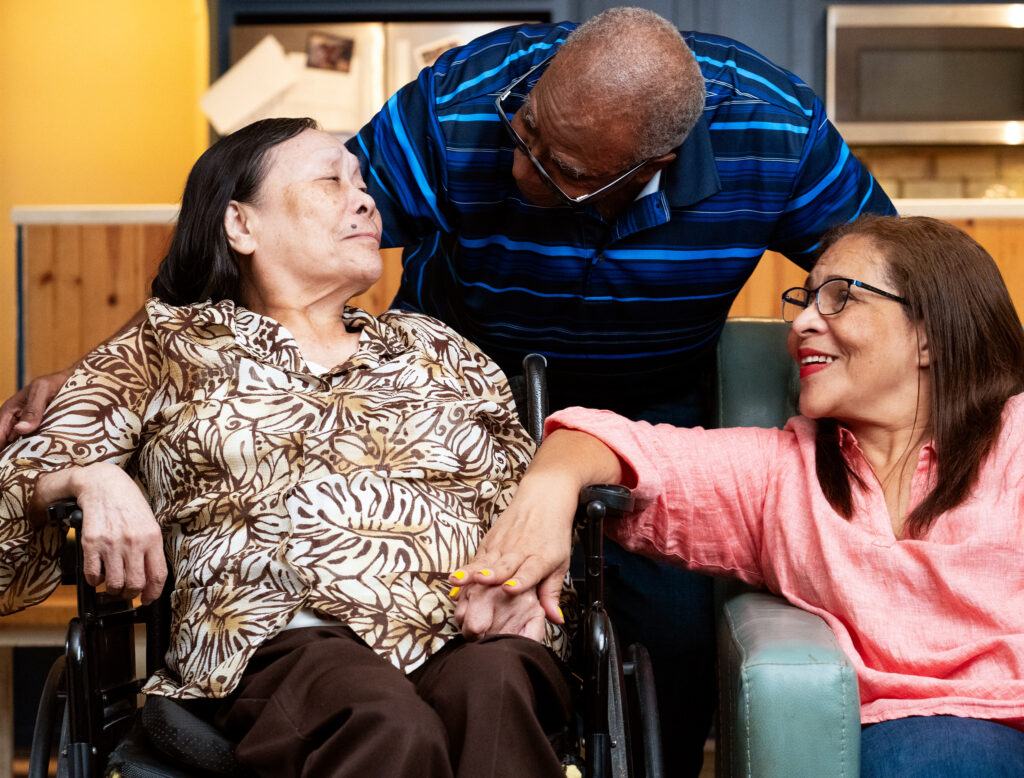
At Papa, we are constantly sharing stories of the diverse relationships that exist among our Pals and members. These stories are often a blueprint of how to build a strong community. We see storytelling as such an important part of fostering a diverse and strong community. Here are just a few examples:
Rafael is a 79-year-old immigrant from Cuba who loves telling stories about his life to his Pal Connor, a 34-year-old white man, every Wednesday during their visits. And Connor looks forward to hearing them each week.
Papa Pal Sunal grew up in India and loves getting to know the members he visits. One of his closest friends is an 80-year-old man from Mexico. The two are from different cultures and communities, but Sunal believes there is no boundary to connection if you look for common ground and make a committement to friendship.
Papa member Kenneth is 71, and his Pal Andreana is 61. Kenneth lost his sight and didn’t feel like he had a good reason to go on living. He credits Andreana with saving his life. He also says she’s become his best friend.
Felicia, a Black woman, says that her Pal Michelle, a white woman, made her feel like a celebrity on their very first visit. “She wiped off the door handles with Clorox wipes, offered me a mask and a bottle of water, and held the door open for me.” It was Michelle who encouraged Felicia to become a Papa Pal herself. Felicia says that seeing so many people from so many walks of life and being able to help them with just a smile is “the greatest feeling in the world.”
And this is just a handful of member/Pal relationships between folks of varying ages, genders, races and ethnicities, backgrounds, and economic statuses. Papa is also very committed to dismantling any barriers—racial inequities, ageism, etc.—that get in the way of these diverse and beautiful relationships.
How to build a strong community without trust? You can't
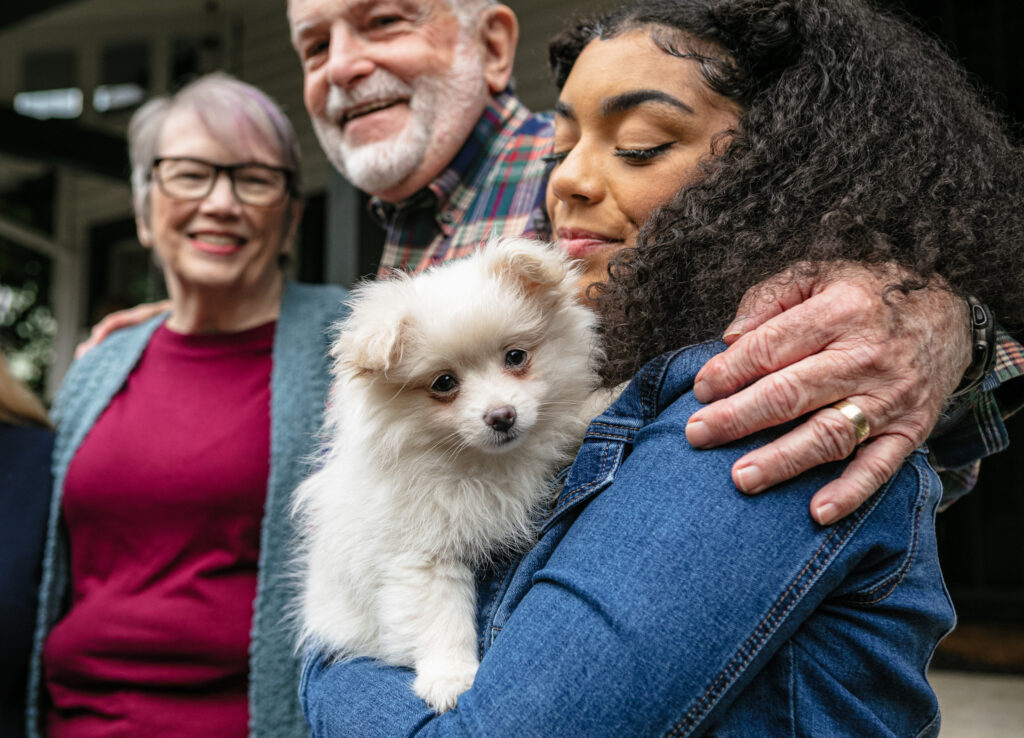
The Advisory defines social support as the “perceived or actual availability of emotional, informational, or tangible resources from other individuals in one’s social network.” (37) So many of our members express that they feel supported by their Pals—and Papa as an organization. It’s so good to know you have someone to reach out to when you need help.
“Trust is a critical component of building strong communities,” the Surgeon General says. An increase in feeling other people can be trusted is associated with a decline in overall mortality. (39) As a general rule, it takes a while to build trust with someone we don’t know. We often slip into an “us” versus “them” mentality, viewing people “like us” as more deserving and distrusting outsiders.
As we get to know people more deeply, we can overcome that distrust. We see this happening every day at Papa.
Papa CEO Andrew Parker is deeply committed to protecting the safety of our members and Pals. Policies, and protocols prioritizing trust and safety are a vital component of the Papa’s platform.
Nothing compares to building beautiful connections and diverse communities on a foundation of compassion and trust. Here at Papa, we feel so lucky to see the ripple effects of our efforts every single day.
Read more in our series on the Surgeon General’s Report
This article is part of a series of articles, each looking into part of Dr. Vivek H. Murthy's report. The other articles are:
A Nation Standing Behind Papa's Vision
